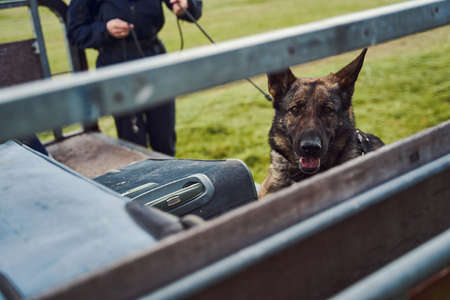Understanding the Role of Dog Trainers in the UK
In the United Kingdom, dog trainers play an essential role not only in teaching obedience but also in enhancing the overall well-being of our four-legged companions. British dog trainers are at the heart of a pet-loving culture, where dogs are often considered cherished members of the family. Their job extends beyond basic commands and behaviour correction; they help bridge communication between humans and their pets, making daily life smoother and more harmonious for both parties. From bustling London parks to scenic countryside villages, professional trainers are a familiar sight, guiding owners through positive reinforcement techniques and modern training methods tailored to individual breeds and personalities. In the UK, where responsible pet ownership is highly valued, dog trainers contribute significantly to community safety and animal welfare by helping dogs become well-mannered, sociable, and happy members of society.
Types of Dog Training Services Available
When it comes to dog training in Britain, there’s a wide spectrum of services available to suit the diverse needs of both pups and their humans. From the rolling parks of London to the scenic trails in the Lake District, British dog trainers offer various options designed to nurture well-mannered, happy canines. Here’s an overview of some common training styles and services you’re likely to encounter across the UK:
| Training Service | Description | Best For |
|---|---|---|
| Puppy Socialisation Classes | Focus on early social skills, basic obedience, and confidence-building in a safe group setting. | Puppies (usually 8–16 weeks) |
| Basic Obedience Training | Covers fundamental commands like sit, stay, recall, and loose lead walking; often offered as group or one-to-one sessions. | Dogs of all ages needing foundational manners |
| Advanced Obedience & Skills | Builds on basic training with more complex tasks, impulse control, and off-lead reliability. | Owners aiming for higher-level control or activities like agility |
| Behavioural Intervention | Tackles specific issues such as aggression, separation anxiety, or excessive barking through tailored strategies. | Dogs exhibiting problem behaviours |
| Agility & Sport Training | Introduces dogs to obstacle courses and competitive sports, improving fitness and focus. | Active dogs and owners seeking enrichment or competition |
In addition to these core services, many British trainers also provide home visits, online consultations, and residential training programmes. It’s worth noting that positive reinforcement is the prevailing ethos among reputable UK trainers, prioritising reward-based methods over outdated punitive techniques. Some trainers specialise further—such as preparing assistance dogs or helping rescue dogs transition into family life. Whether your goal is a polite pup at the pub or a confident companion on countryside rambles, there’s a British dog training service tailored to meet your lifestyle and your canine’s unique personality.

3. Qualifications and Accreditation of Trainers
When searching for a reputable British dog trainer, qualifications and accreditation are key factors to consider. In the UK, there is no legal requirement for dog trainers to hold specific qualifications, which makes it all the more important for owners to do their homework. Reputable trainers often possess certifications from well-respected organisations such as the Association of Pet Dog Trainers (APDT UK), the Institute of Modern Dog Trainers (IMDT), or the Kennel Club Accredited Instructor Scheme. These accreditations demonstrate that a trainer has undergone rigorous assessment, adheres to ethical standards, and is committed to ongoing professional development.
Additionally, you might look for trainers who hold relevant diplomas or certificates in animal behaviour or canine psychology from recognised educational institutions. Membership in professional bodies, such as the Pet Professional Guild (PPG) or the Animal Behaviour and Training Council (ABTC), also serves as a mark of credibility. These organisations require their members to follow strict codes of conduct and engage in regular training updates.
Ultimately, don’t be afraid to ask your prospective trainer about their credentials, experience, and approach. A trustworthy professional will be transparent about their background and happy to provide evidence of their expertise. By prioritising these qualifications and affiliations, you ensure your beloved canine is in capable hands with someone who truly understands both modern training techniques and British best practices.
4. Choosing a Trainer That Suits Your Dog’s Needs
Selecting the right dog trainer is crucial for your canine companion’s success and well-being. In the UK, there’s no one-size-fits-all approach—your dog’s breed, temperament, and learning style all play a role. Here are some practical tips to help you assess trainers and ensure a good fit for both you and your dog.
Tips for Assessing Dog Trainers
- Observe Their Methods: British trainers often favour positive reinforcement, but methods can vary. Watch a class or ask about their philosophy—do they use rewards, clickers, or gentle corrections?
- Ask About Experience: Find out how long they’ve been training, what qualifications they hold (such as IMDT or APDT membership), and their experience with your dog’s breed or behavioural issue.
- Compatibility Check: Does the trainer’s personality complement your dog? Some dogs respond best to calm encouragement, while others need an energetic approach.
- Trial Session: Many UK trainers offer taster sessions—an ideal way to see how your dog reacts before committing.
Key Criteria for Selecting a British Dog Trainer
| Criteria | What to Look For | Why It Matters |
|---|---|---|
| Training Methods | Positive reinforcement, science-based techniques | Builds trust, avoids fear-based responses |
| Qualifications & Memberships | IMDT, APDT UK, PACT certificates | Shows commitment to standards and continued learning |
| Experience with Breed/Issue | Specific knowledge of your dog’s traits or challenges | Tactics tailored to individual needs yield better results |
| Class Size & Structure | Small groups or one-to-ones available | Ensures attention and less overwhelm for nervous dogs |
| Cultural Fit & Communication Style | Bespoke advice, local knowledge (parks, etiquette) | Makes daily walks and socialising easier in British settings |
Questions to Ask Before Booking
- Can I observe a session?
- How do you handle setbacks or anxious dogs?
- Are you insured and first aid trained?
- What follow-up support do you offer?
- Do you have references from local owners?
The Bottom Line: Trust Your Instincts—and Your Dog’s!
A great British dog trainer should make both you and your pooch feel comfortable. Don’t rush the decision; take time to research, visit classes, and chat with fellow local pet parents. After all, every pup deserves a tailored approach that brings out their very best British manners!
5. The Importance of Local Knowledge
When it comes to dog training in the UK, local knowledge truly makes a world of difference. Working with trainers who are familiar with your area—whether that’s the bustling streets of London or the scenic trails of the Lake District—ensures that your canine companion receives guidance tailored to their daily environment. British cities and countryside offer unique challenges, from navigating crowded tube stations and busy high streets to mastering recall off-lead on windswept moors or by tranquil lakesides. Trainers who understand these specific settings can incorporate real-world scenarios into your dog’s learning, making every session practical and relevant.
For example, a trainer based in central London will know the best dog-friendly parks for socialisation, how to help your pooch remain calm amidst double-decker buses and black cabs, and the etiquette expected in popular communal green spaces like Hyde Park. Conversely, a trainer from Cumbria might focus on building stamina for long fell walks and teaching safe behaviour around livestock, which is crucial for rural adventures. This local insight helps prevent common mishaps—such as wildlife chasing or leash-pulling in crowded places—and boosts your confidence when exploring new areas with your pet.
Additionally, trainers embedded in your community often have connections to local vets, groomers, pet shops, and group classes. Their recommendations can be invaluable when you’re seeking trusted services or want to join a supportive network of fellow dog lovers nearby. Ultimately, choosing a British dog trainer with strong local knowledge gives you and your four-legged friend an advantage: not only do you get expert advice rooted in real-life experience, but you also set the stage for countless enjoyable outings across Britain’s diverse landscapes.
6. What to Expect from the Training Process
Choosing the right British dog trainer is just the beginning; understanding what lies ahead during the training journey helps set realistic expectations and ensures a smooth experience for both you and your canine companion. Here’s a breakdown of what you can typically expect in the context of British homes:
Initial Assessment and Consultation
The journey usually begins with an initial consultation, often held at your home or occasionally at a local park. This allows the trainer to assess your dog’s behaviour in its natural environment, discuss your goals, and tailor a plan specific to your household’s needs. British trainers place great emphasis on fitting their approach to the unique quirks of both your dog and your living situation.
Duration and Structure of Training
The length of a typical training programme can vary considerably. For basic obedience, you might expect weekly sessions over six to eight weeks. More complex behavioural issues may require a longer commitment. Many British trainers offer flexible packages—ranging from one-to-one sessions at home to group classes at community halls or green spaces—to suit different lifestyles.
Home Visits Versus Group Sessions
Home visits are particularly popular across the UK, allowing trainers to address problems where they occur most frequently: in your own living room or back garden. These personalised sessions can be more effective for dogs who are nervous or reactive in unfamiliar environments. Alternatively, group sessions provide valuable opportunities for socialisation with other local pups—a key aspect highlighted by many British trainers.
Ongoing Support and Follow-Up
After the initial training phase, most reputable British trainers offer ongoing support via phone calls, emails, or occasional refresher visits. This follow-up is crucial for reinforcing good habits and troubleshooting any new challenges as they arise. Some professionals even provide access to online communities or WhatsApp groups for peer support among dog owners in your area.
Integration into Everyday British Life
A good trainer will help you weave training seamlessly into your daily routine—whether that’s practising recall on a muddy walk through Hampstead Heath, or ensuring polite greetings when neighbours pop round for a cuppa. The goal isn’t just obedience; it’s building a harmonious relationship that suits your lifestyle and enhances life in your British home.
By knowing what to expect from the process, you’ll feel more confident in choosing a professional who not only understands dogs but also appreciates the nuances of life with pets in the UK.


